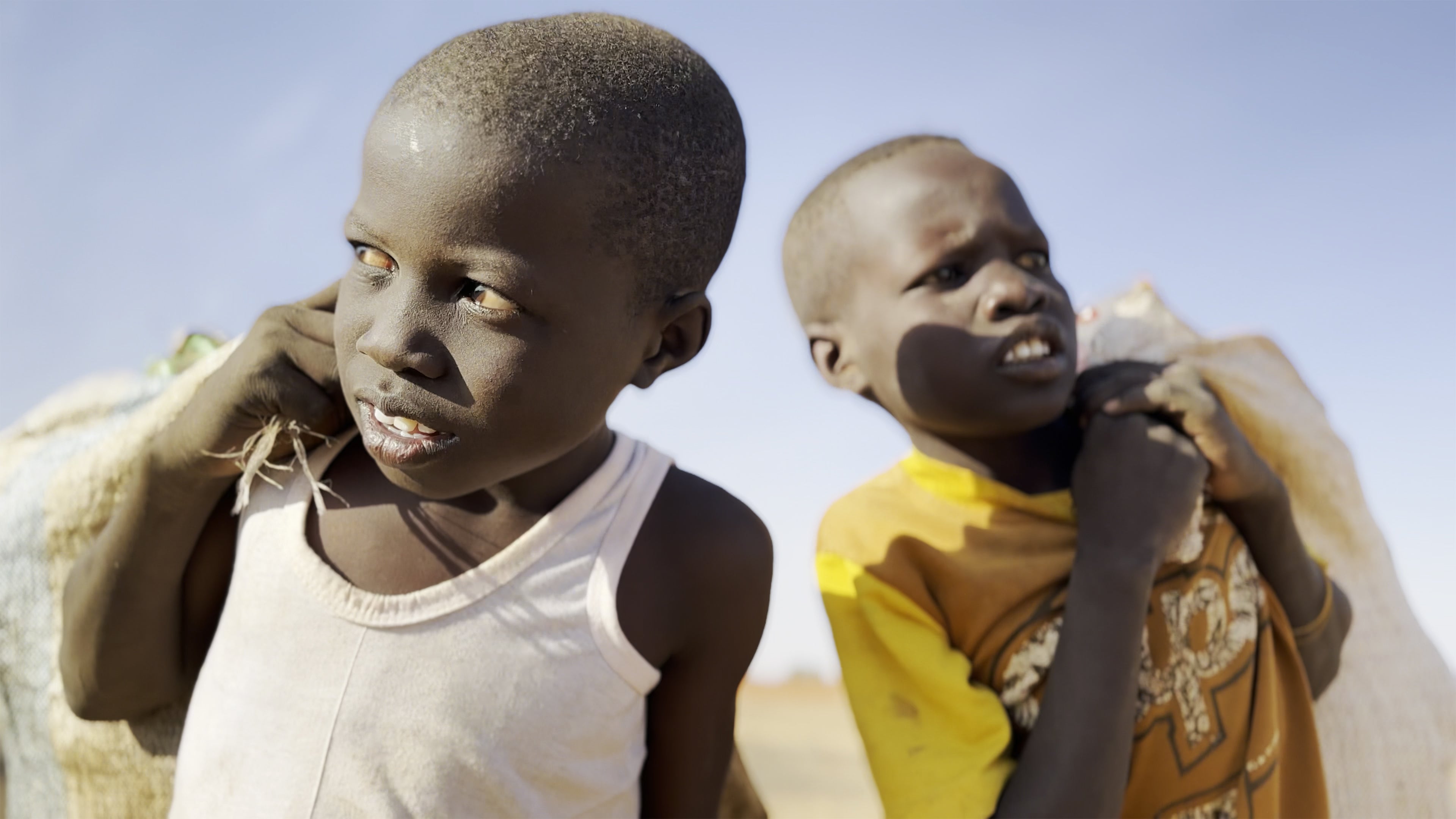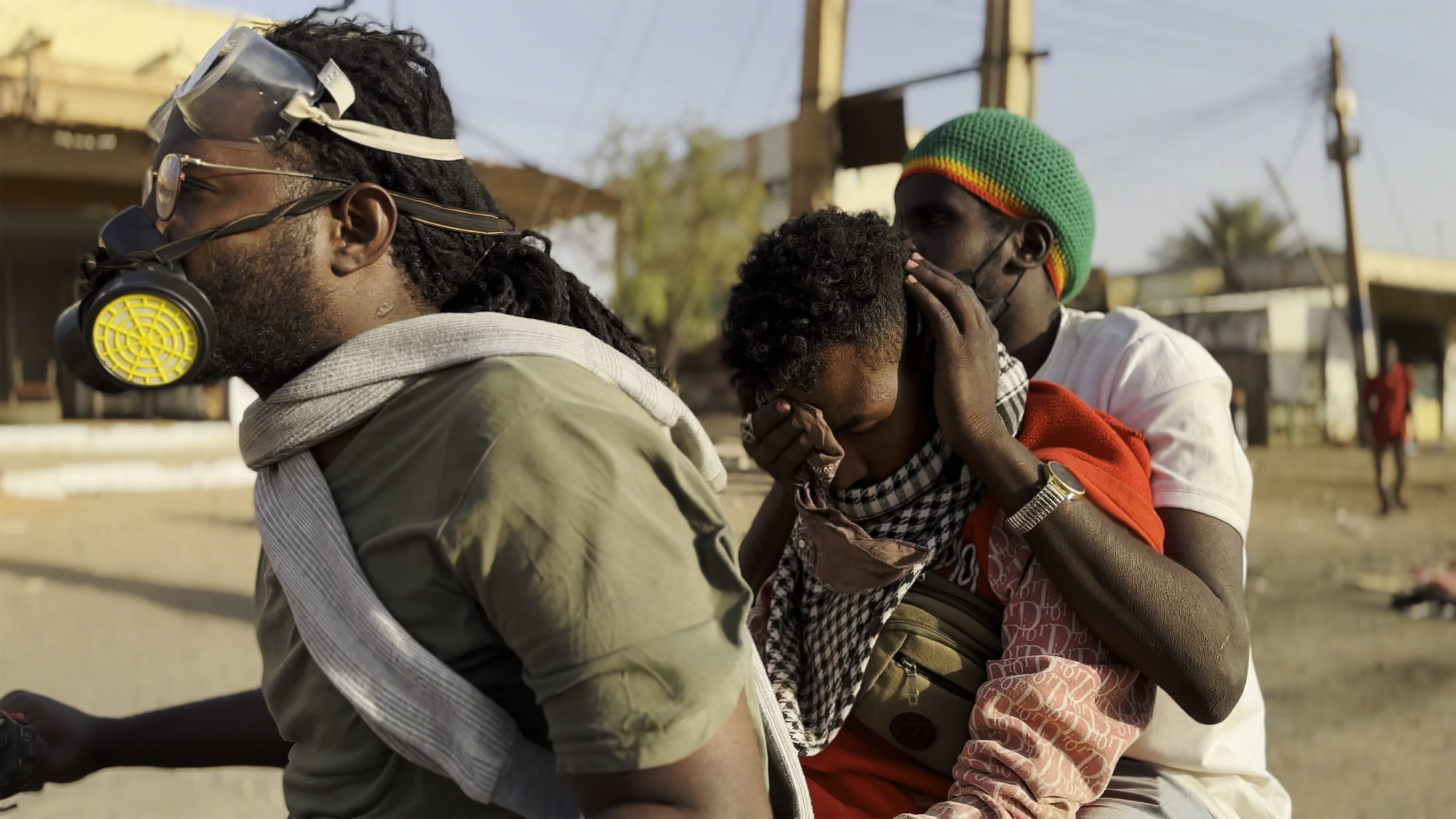Lokain and Wilson are eleven and twelve years old. They spend their days collecting bottles in the hope of making their life’s biggest dream come true: buying two beautiful shirts.
Twenty-seven-year-old Khadmallah is a tea vendor working on the roadsides of Khartoum after arriving from the Nuba mountains. Meanwhile, Majdi, 45, is a civil servant whose work didn’t stop even when war broke out in Sudan in April 2023, plunging the country into one of the world’s worst humanitarian crises.
They are among the subjects of Khartoum, the first Sudanese film to debut at the Sundance Film Festival. Premiering on Monday (27 January), the documentary is directed by Sudanese filmmakers Anas Saeed, Rawia Alhag, Ibrahim Snoopy, Timeea M Ahmed, and Phil Cox, whose previous works include The Love Hotel and The Bengali Detective.
The film captures the vibrant lives of its subjects and the filmmakers themselves – until violence erupted halfway through production. The country is facing the world’s worst displacement crisis with over 11 million people displaced according to the International Rescue Committee. The team and participants were also displaced as the conflict spread, forcing a shift in focus. Film funds were diverted to ensure their survival during perilous escapes to safety. Archives, libraries, and museums were burned to the ground, and much of Sudan’s cultural heritage was lost forever.
“We don’t have footage from escaping the war,” director Ahmed told The Independent. “We couldn’t film within the conflict area – it wasn’t safe to take videos or to record.”
To fill the gaps caused by this displacement, the filmmakers turned to Sudan Memory, a rich archive of rare cultural materials collected by academics at King’s College London. Dr Marilyn Deegan, one of the project’s founders, said the team had scanned over 300,000 images to date, continuing the work even as the war rages on.
The project provided what Ahmed calls a “creative solution.” The film incorporates archival materials, including contemporary images, album covers, airplane tickets, and countryside scenes, to reconstruct the world left behind. These include photographs by German archaeologist Pawel Wolf and artefacts from the Pitt Rivers Museum in Oxford.
Sudan Memory was initially established after ISIS destroyed rare libraries and museums in Timbuktu in 2012. “The Sudanese got really worried that the same sort of thing could happen in Sudan, and indeed it has,” said Dr Deegan. “They got in touch with us to ask, could digitisation help?”
Since then, the project has gathered 43 collections, accessible on its website, ranging from manuscripts and photographs to graffiti, films, and music. “There are stories about food, football, crocodiles on the Nile,” Dr Deegan said. She added that Sudan, home to more pyramids than Egypt, boasts one of the largest film archives in Africa. “We want to show the world we are more than famine, war, and genocide. There is a rich culture here, as rich as Greece, Rome, and Egypt.”

The filmmakers emphasise that Khartoum is not just a piece of reportage but a testament to a Sudan that existed before war consumed it. “There was always a bigger picture,” said Snoopy. “Even if the film didn’t succeed, it was going to serve as a document and testimony of Khartoum before the war. It’s the only way we can tell the story without making it just another sad story from Africa.”
Cox echoed this sentiment, noting that the film spans a century of Sudanese history. “It’s about the last 100 years. It’s not just present tense or now – there’s something much deeper, which is what the pictures serve.”
Dr Erica Carter, a professor of German and Film Studies at King’s College London, said the team saw their work as providing what Hannah Ishamel, former collections manager at Black Cultural Archives, calls “archival sanctuary.”
“It’s not ours to keep, but we have to look after it because we have a responsibility to do so,” said Dr Carter. “We’re a wealthy nation. What we’ve tried to do at King’s is to recognise that we have knowledge and capacity that we can put at the service of other people.”

For the filmmakers, Khartoum is more than a creative project – it’s deeply personal. Alhag, one of the directors, became the legal guardian of Lokain and Wilson, moving the boys to Nairobi after a painstaking search to find them when war broke out. The two, usually jovial and upbeat, had been recruited as child slaves by militias. A GoFundMe campaign has since been launched to support their education.
“I wanted to change the lives of these kids, and I’m doing that right now by having them with me,” Alhag said. “That goal has been achieved, and that means everything.”
Ahead of the premiere at Sundance, Ahmed is clear about the film’s purpose: “The purpose of the film is not just festivals and to win something. The actual win for us is awareness – for the world to know what’s going on in a part of northeastern Africa.”







